第173章 CHAPTER LXXXV(1)
Ernest being about two and thirty years old and having had his fling for the last three or four years, now settled down in London, and began to write steadily. Up to this time he had given abundant promise, but had produced nothing, nor indeed did he come before the public for another three or four years yet.
He lived as I have said very quietly, seeing hardly anyone but myself, and the three or four old friends with whom I had been intimate for years. Ernest and we formed our little set, and outside of this my godson was hardly known at all.
His main expense was travelling, which he indulged in at frequent intervals, but for short times only. Do what he would he could not get through more than about fifteen hundred a year; the rest of his income he gave away if he happened to find a case where he thought money would be well bestowed, or put by until some opportunity arose of getting rid of it with advantage.
I knew he was writing, but we had had so many little differences of opinion upon this head that by a tacit understanding the subject was seldom referred to between us, and I did not know that he was actually publishing till one day he brought me a book and told me flat it was his own. I opened it and found it to he a series of semi-theological, semi-social essays, purporting to have been written by six or seven different people, and viewing the same class of subjects from different standpoints.
People had not yet forgotten the famous "Essays and Reviews," and Ernest had wickedly given a few touches to at least two of the essays which suggested vaguely that they had been written by a bishop. The essays were all of them in support of the Church of England, and appeared both by internal suggestion, and their prima facie purport to be the work of some half-dozen men of experience and high position who had determined to face the difficult questions of the day no less boldly from within the bosom of the Church than the Church's enemies had faced them from without her pale.
There was an essay on the external evidences of the Resurrection; another on the marriage laws of the most eminent nations of the world in times past and present; another was devoted to a consideration of the many questions which must be reopened and reconsidered on their merits if the teaching of the Church of England were to cease to carry moral authority with it; another dealt with the more purely social subject of middle class destitution; another with the authenticity or rather the unauthenticity of the fourth gospel--another was headed "Irrational Rationalism," and there were two or three more.
They were all written vigorously and fearlessly as though by people used to authority; all granted that the Church professed to enjoin belief in much which no one could accept who had been accustomed to weigh evidence; but it was contended that so much valuable truth had got so closely mixed up with these mistakes, that the mistakes had better not be meddled with. To lay great stress on these was like cavilling at the Queen's right to reign, on the ground that William the Conqueror was illegitimate.
One article maintained that though it would be inconvenient to change the words of our prayer book and articles, it would not be inconvenient to change in a quiet way the meanings which we put upon those words. This, it was argued, was what was actually done in the case of law; this had been the law's mode of growth and adaptation, and had in all ages been found a righteous and convenient method of effecting change. It was suggested that the Church should adopt it.
In another essay it was boldly denied that the Church rested upon reason. It was proved incontestably that its ultimate foundation was and ought to be faith, there being indeed no other ultimate foundation than this for any of man's beliefs. If so, the writer claimed that the Church could not be upset by reason. It was founded, like everything else, on initial assumptions, that is to say on faith, and if it was to be upset it was to be upset by faith, by the faith of those who in their lives appeared more graceful, more lovable, better bred, in fact, and better able to overcome difficulties. Any sect which showed its superiority in these respects might carry all before it, but none other would make much headway for long together. Christianity was true in so far as it had fostered beauty, and it had fostered much beauty. It was false in so far as it fostered ugliness, and it had fostered much ugliness. It was therefore not a little true and not a little false; on the whole one might go farther and fare worse; the wisest course would be to live with it, and make the best and not the worst of it. The writer urged that we become persecutors as a matter of course as soon as we begin to feel very strongly upon any subject; we ought not therefore to do this; we ought not to feel very strongly--even upon that institution which was dearer to the writer than any other--the Church of England. We should be churchmen, but somewhat lukewarm churchmen, inasmuch as those who care very much about either religion or irreligion are seldom observed to be very well bred or agreeable people. The Church herself should approach as nearly to that of Laodicea as was compatible with her continuing to be a Church at all, and each individual member should only be hot in striving to be as lukewarm as possible.